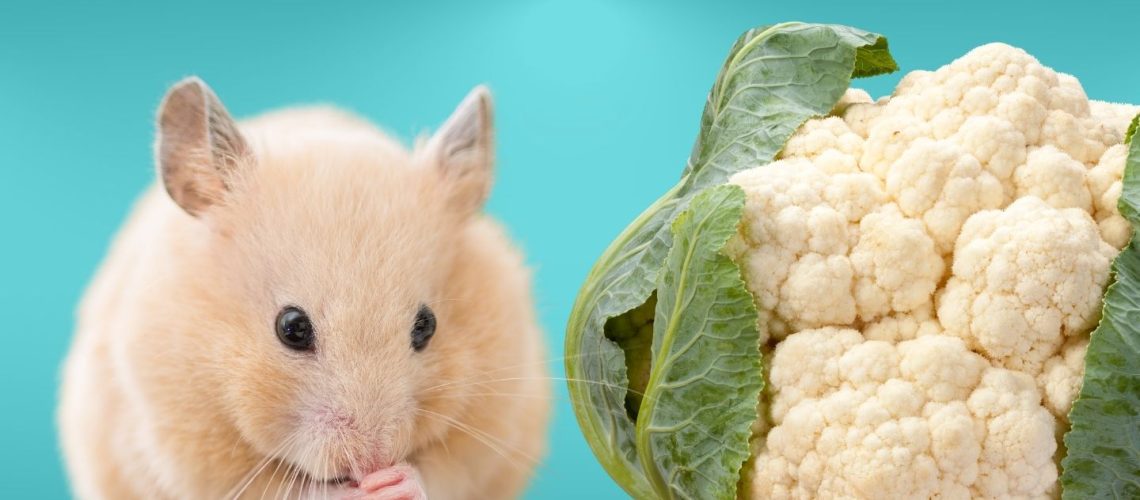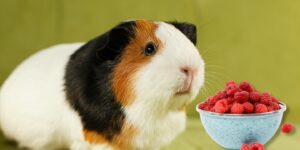Yes, hamsters can eat cauliflower in moderation as part of a well-rounded diet. However, it is important to feed cauliflower to hamsters in small amounts and monitor their reaction to this vegetable. This article will discuss the benefits and risks of feeding cauliflower to hamsters and provide tips on how to prepare and serve it properly.
Introduction
Hamsters and their dietary needs
Hamsters are small rodents that require a balanced and diverse diet to thrive. Their diet should consist of a mix of proteins, fats, carbohydrates, vitamins, and minerals. Fresh fruits and vegetables can be a valuable addition to a hamster's diet, supplementing their nutritional needs.
Importance of a well-rounded diet for hamsters
A well-rounded diet aids in maintaining a hamster's overall health, promotes a long and happy life, and prevents diseases and conditions associated with poor nutrition.
Nutritional Value of Cauliflower
Vitamins and minerals present in cauliflower
Cauliflower is rich in essential vitamins and minerals, including vitamins C and K, folate, potassium, and magnesium. These nutrients contribute to various aspects of a hamster's health, such as maintaining a strong immune system and promoting healthy bone growth.
Fiber content in cauliflower
Cauliflower boasts a high fiber content, which is vital for maintaining healthy digestion in hamsters.
Low calorie count
Cauliflower is also low in calories, making it an ideal vegetable to include in a hamster's diet without significantly increasing their daily caloric intake.
Benefits of Cauliflower for Hamsters
Promotes healthy digestion
The high fiber content in cauliflower aids in promoting healthy digestion, keeping the hamster's digestive system functioning properly.
Prevents obesity
Because of its low-calorie count, feeding cauliflower to hamsters may help reduce the risk of obesity and related health issues.
Boosts immune system
Cauliflower's high nutrient content helps to support the hamster's immune system, keeping them healthy and able to fight off infections.
Antioxidant properties
Cauliflower contains antioxidants, which can help protect hamsters from cellular damage caused by free radicals.
Risks of Feeding Cauliflower to Hamsters
Gas and bloating
Overfeeding cauliflower can lead to gas and bloating in hamsters due to its high fiber content.
Digestive issues
Introducing cauliflower too quickly or in large amounts can cause digestive issues for hamsters as their system adjusts to this new food.
Allergic reactions
While rare, some hamsters might have an allergic reaction to cauliflower. If you notice any unusual symptoms after feeding cauliflower, discontinue its use and consult your veterinarian.
Potential choking hazard
Cauliflower pieces that are too large or not cooked properly can pose a choking hazard to hamsters.
Preparing Cauliflower for Hamsters
Washing and cleaning the cauliflower
Before feeding cauliflower to a hamster, it is essential to wash and clean it thoroughly to remove any dirt, pesticides, or bacteria that may be present.
Cooking methods: steamed vs. raw
Although hamsters can eat raw cauliflower, it can be a bit tough for them to chew and digest. Steaming cauliflower before feeding may help to soften it and make it more easily digestible for your hamster.
Portion sizes and frequency
Start by offering a small piece of cauliflower, about the size of a pea, to your hamster every other day. Gradually increase the portion size over time.
Mixing cauliflower with other vegetables
To provide a balanced diet, consider combining cauliflower with other vegetables that are safe for hamsters to eat, such as carrots, bell peppers, and broccolini.
Monitoring Your Hamster's Reaction
Observing changes in behavior
Keep an eye on your hamster's behavior after introducing cauliflower into their diet. If you notice any signs of discomfort or unusual behavior, stop feeding them cauliflower and consult your veterinarian.
Signs of digestive issues
If your hamster experiences gas, bloating, or diarrhea after eating cauliflower, reduce the portion size or discontinue its use until their digestive system has returned to normal.
Adjusting portion sizes and frequency
Based on your hamster's reaction to cauliflower, adjust the portion size and feeding frequency as needed. If your hamster shows no adverse reactions, you can continue to slowly increase the amount of cauliflower they consume.
When to stop feeding cauliflower
If your hamster continues to experience adverse reactions to cauliflower, discontinue its use and replace it with another vegetable or fruit that is safe for them to eat.
Alternatives to Cauliflower
Other vegetables safe for hamsters
If your hamster cannot tolerate cauliflower, other vegetables safe for them to eat include cucumber, spinach, zucchini, and peas.
Fruits that can be included in a hamster's diet
Fruits such as apples, pears, and bananas can also be included in a hamster's diet, but do so sparingly, as these tend to be higher in sugar.
Commercial hamster food options
Hamster-specific food blends are available on the market, and these typically contain a mix of seeds, grains, and vegetables that cater to their dietary needs.
Conclusion
Cauliflower can be a healthy and nutritious addition to a hamster's diet when fed in moderation. It is essential to introduce this vegetable gradually and monitor the hamster's reaction to ensure they can tolerate it. Always observe your hamster's health and well-being, adapting their diet according to their specific needs.


























